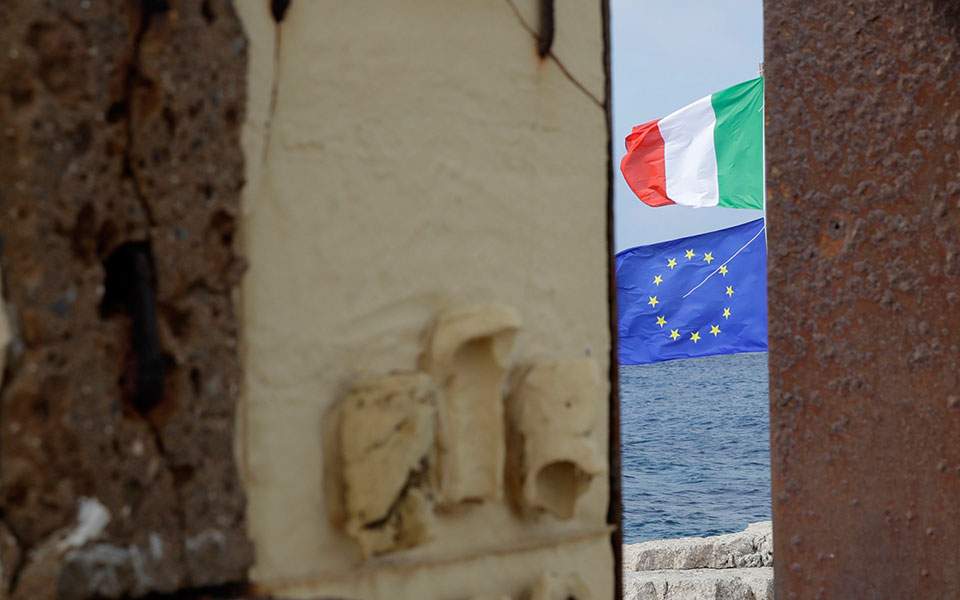Europe’s walls and Italy

Great fortresses do not fall at the first attack. At some point, however, the walls begin to fray and new holes keep opening, the defenders’ endurance runs out and the attackers take strength from the smell of blood. Then, a gate somewhere will be forgotten, left unlocked, and the enemy will suddenly be inside the walls. In this way, a coalition government between two Italian parties that are ready to challenge core European Union rules and practices will show whether the Union still has reserves of strength or whether decay and fragmentation are inevitable.
Watching from Greece, it seems inconceivable that politicians and voters in a country that is a founding member of the EU would try to repeat the spectacular failure of the Tsipras-Varoufakis campaign; and yet, the nascent coalition seems prepared to set terms to Italy’s partners, to threaten withdrawal from the eurozone, to demand the cancellation of 250 billion euros of government debt. But even more worrisome than the threat of blackmail is that those who will hold the fate of Europe’s third largest economy in their hands do not understand what happened in Greece.
In Italy the debate swirls around the concept that the Europeans enslaved Greece. We don’t need to go into the details of the Greek crisis to see that the Five Star Movement and the League appear certain that they can achieve what the Greeks did not. They seem to think, also, that the Greek crisis would have been avoided if money had been piled on Greece without the country taking the steps needed to create a viable economy. Perhaps the Italian coalition’s thinkers are making their plans on the basis that Italy is big enough to frighten its partners with the thought of its hewing its own course – perhaps even leaving the eurozone.
This is where the major problem for Italy and the rest of Europe lies. Italy is indeed too big for the Eurosystem to survive its bankruptcy. If the coalition parties go ahead with their promises and at some point Italy finds itself outside the eurozone and, by extension, the European Stability Mechanism, then it will have only the International Monetary Fund to turn to for support. If the deep thinkers of the coalition really did follow developments in Greece, they would do all they could to avoid such a development. Unfortunately, though, when they look at Greece they see only what they wish to see – the same mistake that Tsipras and Varoufakis made.
It remains to be seen – after the Greek crisis, Brexit and the rise of nationalist populists in many countries – whether the fortress can survive more self-destructive extravaganzas.





